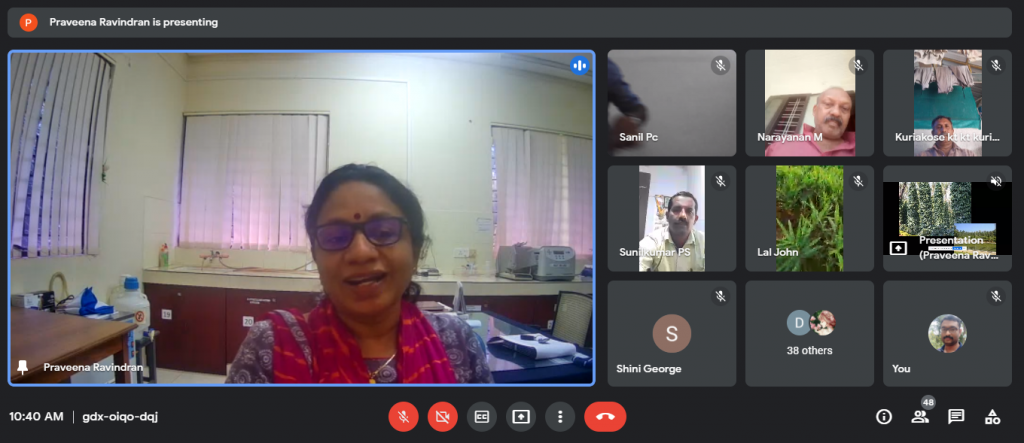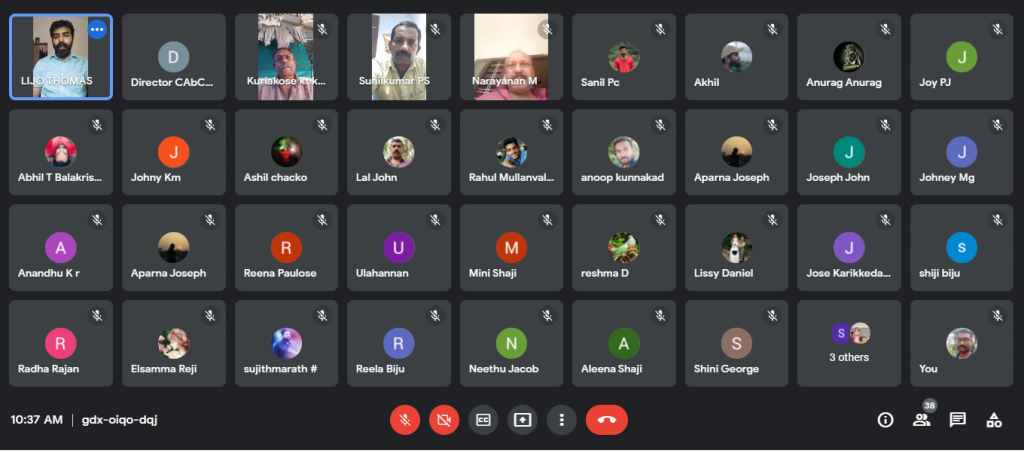Monsoon season is also the season for various pests and diseases especially for the cultivation of spice crops. Diseases such as quick wilt disease, slow wilt disease in Pepper, Rhizome Rot and Blight disease in Ginger, Rotting diseases in Turmeric etc. are some of the best examples to note. Farmers across the state and especially in Wayanad are meddling with this menace and huge crop loss and income loss is being ensued as default. Lack of awareness among the farmers is an important area of concern to fight against these fatal diseases.

Farmers should follow an integrated approach in spice cultivation said Dr. Praveena, Senior Scientist, Plant Pathology, Indian Institute of Spices Research (IISR-ICAR) Calicut in an Online training programme organized by MSSRF. She also stressed the importance of various management practices to control the pest and diseases in spice crops such as chemical, physical and biological control measures. Dr. Lijo (Scientist, IISR) pointed out the importance of planting disease-resistant varieties to protect against mortal diseases such as quick wilt. He also mentioned the importance of prophylactic measures to be taken up before the onset of the rainy season especially the importance of application of the Bordeaux mixture to pepper vines. Dr. V. Sreenivas (Principal Scientist, IISR) told about the support services provided by IISR to farmers and students.
Dr. Shakeela (Director, MSSRF CAbC) urged the farmers to use the biological control measures in their plot and ushered the farmers that CAbC could provide quality biological inputs for farming. Materials such as Trichoderma harzianum, Pseudomonas fluorescence, Beauveria bassiana etc. will be produced in the laboratory and given to farmers as and when it is necessary. She also pointed out that CAbC nurtures several women Self Help Groups (SHGs) in this dimension and they are producing these inputs at various Grama Panchayaths of Wayanad district.

The online training was organized as part of the project titled ‘DBT Biotech Kisan Hub’ and is being supported by the Department of Biotechnology (DBT). The session was attended by 60 farmers from various villages in Wayanad, namely Padichira, Noolpuzha, Pozhuthana and Pulpally. In the seminar, welcome note was made by Sri. Sanil P.C and Miss. Aparna Joseph shared her gratitude for all the participants and experts in making the programme a successful one.
